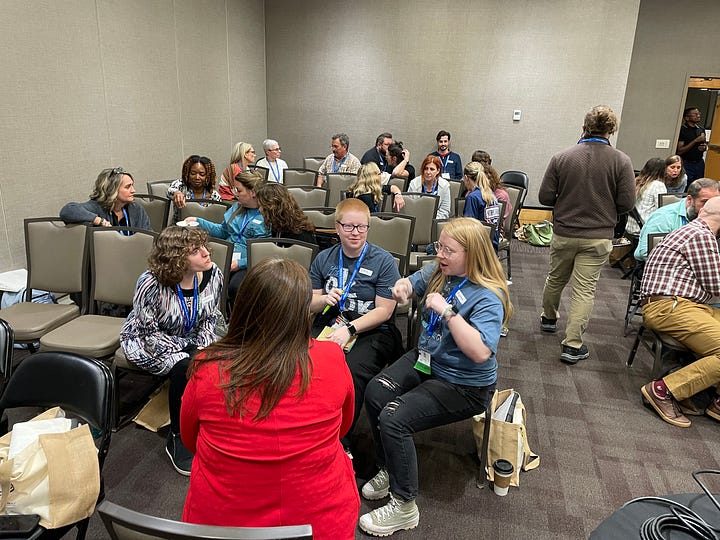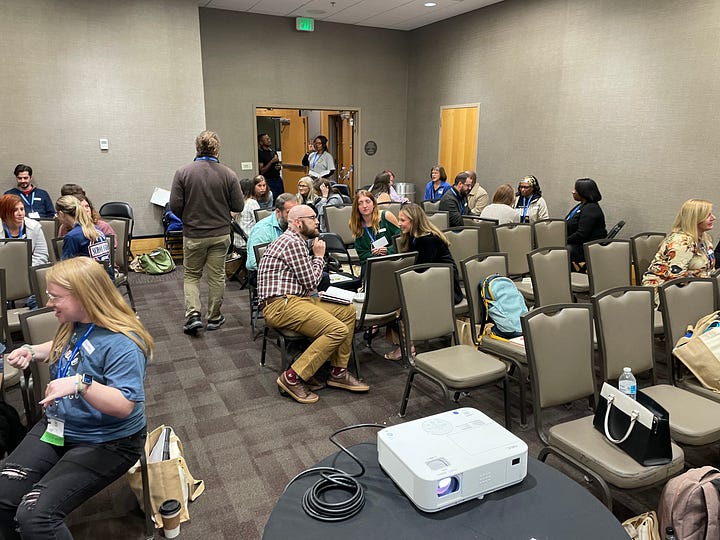Just recently, I was asked to co-present at the ALCA (Alabama Counseling Association) State Wide Convention. It was a surreal.
As a Certified Therapeutic Game Master I was asked to present as part of team talking about gaming and therapy. I was thrilled but had no idea how I was going to teach 40 people about role playing games, in 30 min, without actually running a game.


It didn’t take me long to remember what made my gaming experience special, it was my friends around the table, which is in itself, therapeutic. I decided to focus on the experience not the game.
When it was my turn to present, I asked everyone to break up into groups of 4. After everyone was in their groups, we handed out a bowl, four labels with Fighter, Wizard, Rogue and Cleric, a card that read Healing Potion and a 20 sided die. This was the party.
After they formed their groups, I shared a few slides explaining how this gaming simulation was going to go.
I asked each person in the group to choose a flaw ( arrogance, too much drink, etc.)
I asked them how they knew each other (childhood friends, army buddies, etc.). One group was escaped convicts and the another a group of bakers on their way to a baking competition.
I shared that I would read/role play a scenario and they had to decide, as a group wha they would do. I gave them a DC (Difficulty Challenge) number and each person in their party had to roll.
I explained, rolling at or over the DC was epic success. Rolling under the DC meant consequence. They had to decide what each of those things meant for their group and the results were hilarious.
There were three scenarios, finding a map, convincing a giant to let them cross a bridge and stealing a dragons treasure. The DC went up by 2 with each scenario.
At the end, and this was the therapeutic part, I asked them some debriefing questions:
What do you think your character learned this session? One person said, “Nothing, he died “
What is one real life lesson you can take away from todays lesson?
One lady shared about being in the group and feeling anxious that she had nothing to contribute. One of her party jumped in and said, ““By the end, she was running things”
This is why, in my opinion, games, especially role playing games can make a real impact with clients, especially teenagers.
In 30 minutes, this mental health professional went from anxious, not knowing what she could contribute to be becoming a leader. Gaming led her to this and hopefully she will be inspired to using gaming to lead her client as well.
If you are a counselor or therapist looking to use gaming with your clients but don’t know where to start, feel free to reach out.



